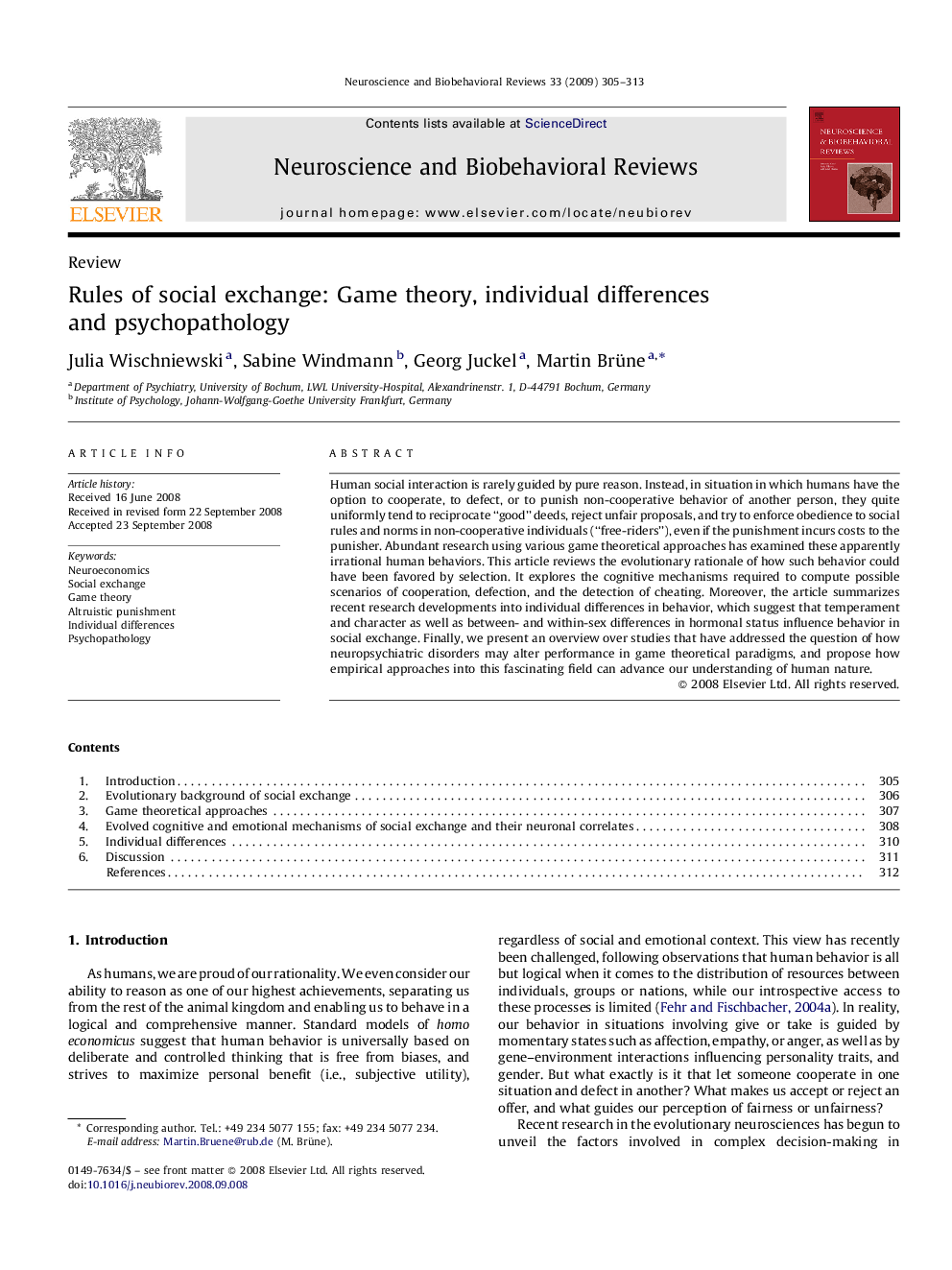| Article ID | Journal | Published Year | Pages | File Type |
|---|---|---|---|---|
| 938171 | Neuroscience & Biobehavioral Reviews | 2009 | 9 Pages |
Human social interaction is rarely guided by pure reason. Instead, in situation in which humans have the option to cooperate, to defect, or to punish non-cooperative behavior of another person, they quite uniformly tend to reciprocate “good” deeds, reject unfair proposals, and try to enforce obedience to social rules and norms in non-cooperative individuals (“free-riders”), even if the punishment incurs costs to the punisher. Abundant research using various game theoretical approaches has examined these apparently irrational human behaviors. This article reviews the evolutionary rationale of how such behavior could have been favored by selection. It explores the cognitive mechanisms required to compute possible scenarios of cooperation, defection, and the detection of cheating. Moreover, the article summarizes recent research developments into individual differences in behavior, which suggest that temperament and character as well as between- and within-sex differences in hormonal status influence behavior in social exchange. Finally, we present an overview over studies that have addressed the question of how neuropsychiatric disorders may alter performance in game theoretical paradigms, and propose how empirical approaches into this fascinating field can advance our understanding of human nature.
